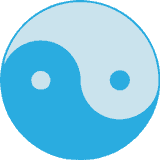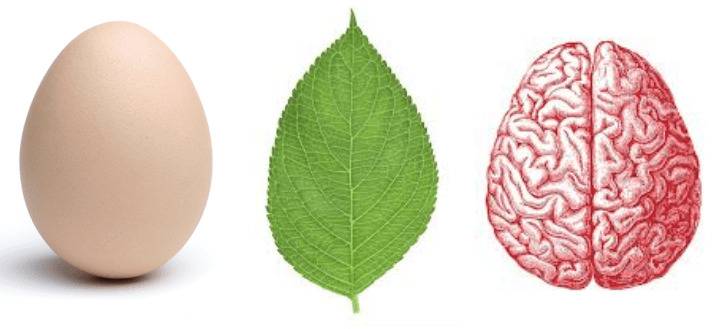Most personality enthusiasts show at least some measure of concern for personal growth. Indeed, many believe that self-knowledge is a prerequisite, if not a catalyst, for personal growth and development.
Students of Jung’s work commonly view self-development, or what Jung called individuation, in terms of a balancing of opposing psychological forces. This may include balancing conscious and subconscious elements of the mind, as well as the various functions of one’s personality type (e.g., Ni, Fe).
Even before Jung, myriad sages and philosophers extolled balance / temperance as a sort of arch virtue—the virtue above all virtues. They were convinced that the good life was the balanced life. In Kierkegaard and Nietzsche, however, we find two philosophers who seriously questioned and sought alternatives to the balance motif.
For Kierkegaard, the aim of life was to cultivate passion, intensity, and a sense of possibility. The idea of stasis—of achieving and maintaining a comfortable point of balance—was anathema to him. Nietzsche also saw balance as an uninspiring concept, one which evoked notions of stasis, mediocrity, blandness, and weakness. To Nietzsche’s eye, if something is perfectly balanced it is essentially lifeless—devoid of tension, movement, or desire. Rarely, if ever, is life completely balanced, but is constantly changing, adapting, desiring, and anticipating.
One alternative to the balance motif is the purposeful life, a life animated by a sense of mission and direction (e.g., “My purpose in life is…”), as well as continuous striving toward one’s purpose. Purpose-seekers exist in a perpetual state of tension between where they’re at and where they’re going. While they may appreciate periods of relative quietude, it is rarely long before they are compelled to resume their purpose quest.


As illustrated above, the balanced life can be represented with a circle, the purposeful life with an arrow. Balance is a characteristically more feminine concept and can be associated with things like cooperation and egalitarianism. Purpose is more pointed, focused, and unidirectional and thus more masculine in its connotation. Just as the masculine and feminine can be conceived as two universal forces, so too with purpose and balance. Neither is inherently better or more important, as both play a central role in the grand drama of life. From the perspective of the individual, however, one of these ideals will often feel more compelling and thus take precedence over the other.
Purpose and balance constitute two distinct visions or ideals for self-development. Even if largely unconscious, these ideals can play an integral role in shaping our goals, motivations, and behavior. The balance-seeker’s path is more diverse and multi-dimensional. Balance-seekers commonly show more or less equal concern for their relationships, careers, hobbies, and self-development. Whatever concerns they may have regarding status, achievement, or other forms of self-advancement are balanced by equally strong interests in their relationships and in appreciating the pleasures and beauty of life.
Purpose-seekers, by contrast, are more single-minded in their approach. Their first aim is to identify their purpose, to zero in on the “one thing” they were born to do. After clarifying their core purpose, their focus shifts from discovering their purpose to enacting it. As a young boy, I dreamed of becoming a professional athlete. In order to make this happen, I felt it necessary to clarify what sport I would focus on, as I didn’t particularly like the idea of dividing my focus between multiple endeavors. Once I had come to a decision, I devoted the lion’s share of my time and energy to pursuing my objective. Even some 30 years later, the notion of the purposeful life has continued to be a driving interest of mine and comprised a central theme in my recent book, The INTP Quest.
“Balanced Purpose” / Finding Purpose in Balance
However different the aims of the purpose-seeker and balance-seeker may be, a Jungian view would suggest that these two ideals can become less antagonist and more integrated over the course of one’s growth and development, with the purpose-seeker becoming more balanced and the balance-seeker more purposeful. Combining the circularity of balance and the directionality of purpose, this integration can be visually depicted with an egg, leaf, or even a human brain, all of which are symmetrical (representing balance) along one axis and asymmetrical (representing purpose / direction) on the other. Perhaps nature has clued us into what we, wittingly or not, are aiming for.

With that said, many of us remain, at least for the time being, more circular or pointed than the egg-shaped ideal. And while we may find it easy to criticize others for being too round (i.e., unmotivated, aimless) or single-minded (i.e., imbalanced), we should avoid the temptation to convert circles to arrows, or vice-versa. Although we can certainly help and support others in their growth process, we must remember that self-development is more of a journey than a quick transformation.
Related Posts
Finding Purpose in Modern Life: Personality, Faith & Knowledge
Two Paths to Type Development: The Auxiliary vs. Inferior Function
Howie Leang says
Hi AJ,
Thanks so much for your body of work. As an INTP, I have often felt misplaced in this world, and your writings have offered me a better understand of myself and have helped me feel less alone.
I found your latest article “Purpose-Seekers vs. Balance-Seekers” very interesting. In my own search to find purpose in my life, I stumbled upon the writings of an Indian guru/mystic/author called Sadhguru. And the “balanced purpose” shape you’ve formulated reminds me of the “perfect ellipsoid” shape Sadhguru says that energy always takes before creation starts. I just found it an interesting coincidence and wanted to share it with you.
Thank you for sharing with us the truths you’ve discovered from your own inward journeys.
Warmest Regards,
Howie
A.J. Drenth says
Thanks so much for your comment and readership Howie. The “perfect ellipsoid” notion is fascinating and, as you point out, nicely illustrates the balanced purpose concept . It’s good to hear that others have proffered similar ideas.
All the best,
A.J.
Name says
Hi,
I don’t think the greek and then the western philosophers ever praised balance as the ultimate virtue. The greek/western philosophy was always mainly concerned with “progress” (transcendence) through the logos. “Rationally” exploring or validating theories that can help us become “better people”. From the platonian Eros to the freudian Libido, the life “purpose”/compulsion/impulse aimed at transcending our nature through sublimination and bring us closer to some divine status(???)
Nietzsche and philosophy since the 19th, since Kant’s critique of the pure reason, just tried to find alternatives to the logos/reason as compass in life and paved the path for “feelings”/existentialism…etc, Nothing more than that.
That’s how I see it personally anyway and I’m not a professional, just an INTJ trying to make sense of her life!
I’m definetely gonna think a lot about the purpose/balance paradigm and am sure to find some precious gems on the way.
Thx
A.J. Drenth says
Thanks so much for commenting. I agree that balance is more predominant in Eastern philosophy, especially in Taoism. But notions like temperance were also held in high regard in Greek philosophy, which pointed to the importance of balance. Thanks too for the reminder about the Platonian notion of Eros and its relationship to purpose / drive.
Carol says
Hi AJ,
I enjoy reading your articles, they always get me thinking though sometimes off on a tangent.
I think a combination of balance and purpose would look like a spiral. End on it looks like circle and side on has the directionality of a line or arrow. When we regain balance in our lives after a change (whether purposeful or not), we are never in the same place we were in before.
Surely both balance and purpose are coded in our DNA?
Carol
A.J. Drenth says
Great point Carol. Love the spiral image.
Dan says
Loved this one A.J. Transcendentalism (Emerson, Thoreau, and I think Whitman) was a profound discovery for me as a young 17-21 year-old. It wasn’t yet enough though to keep me from bolting down false path after false path for years before realizing I was an INTP. For some reason, I had to regard my intuition as a treacherous liar all those years before I let my wisdom catch up to my runaway temerity. Not sure of this, but I think Transcendentalism was somewhat derived out of Immanuel Kant’s writings among others. Anyway, I now remain curious whether Emerson and Transcendentalism is even related to either balance or purpose. Your post has compelled me to go back to my puzzle and find some missing pieces, flip them over, rotate them, and look for any matching colors I didn’t see before. :)
A.J. Drenth says
Thanks so much Dan for your comment. I’m glad you enjoyed the post and that it inspired you to resume work on your puzzle:) I know Thoreau was a strong believer in living deliberately which somehow ties into purpose. I haven’t read enough Emerson to comment on his thought.
Kevin says
I found it interesting that as I started your article, before I got to the second half, I was thinking to myself that a balanced purpose seemed a more appropriate ideal. The image that sprang to mind for me was that of a plant’s stalk–round in cross-section, but growing in a particular direction. If the cross-section isn’t properly balanced, then it pulls the whole stalk to the side. If the plant isn’t growing, then the balance provides no real benefit.
A.J. Drenth says
Another apt illustration. Thanks Kevin!
Puloma says
Every time I take the MBTI test I get the result – INFJ. But INFJs aren’t purpose-seekers, are they? I am a strong purpose-seeker and always have been. When I saw the title of this post turn up on my email, I immediately came to read it. I then went on to read the INTP profile and it sounded very much like me, except in some places which was definitely not me. INFJ and INTP must be very dissimilar? Do people usually get confused between the two? I am an Enneagram 4w5.
Thanks and regards,
Puloma
A.J. Drenth says
Hey Puloma,
There certainly isn’t a 1:1 relationship between MBTI type and purpose-seeking. Many Enneagram Fours, which Riso describes as identity-seekers, may consider themselves purpose-seekers due to the overlap between identity and purpose. Sex / gender, as well as environmental factors, may also affect one’s purpose-seeking propensity.
Rianna says
Yay! Analytical Psychology has finally made a prominent appearance (that I’ve seen, at least. A lot of your work has been more conservative mainstream, though still great). This is awesome, I love seeing your edgier sides / more philosophical – spiritual sides.
Pat Eddishaw says
I remember many years ago the woman’s group I was meeting with started talking about the desire to achieve balance in their lives. I was the only one sitting there thinking – silently to myself – that I in fact didn’t want balance. I needed intensity, drive, passion, and that somehow achieving balance would require me to give all that up. But as an INTJ female I was so used to being out of step with others – particularly other women – that I just saw it as a curiosity, albeit one that obviously has stuck in my mind. I said nothing to the group at the time because I knew from experience it would just separate me further.
I’m 75 now and at another turning point in my life going forward. The more obvious avenues for purpose in the world such as career no longer fit as easily. I seem to need a more internal life now but yet one that still retains an element of drive and passion. I haven’t figured out an answer yet but your post has crystallized for me what my struggle is, and I thank you.
A.J. Drenth says
You’re quite welcome Pat. Thanks so much for sharing your experience as an INTJ. I’m glad you resonated with the post.